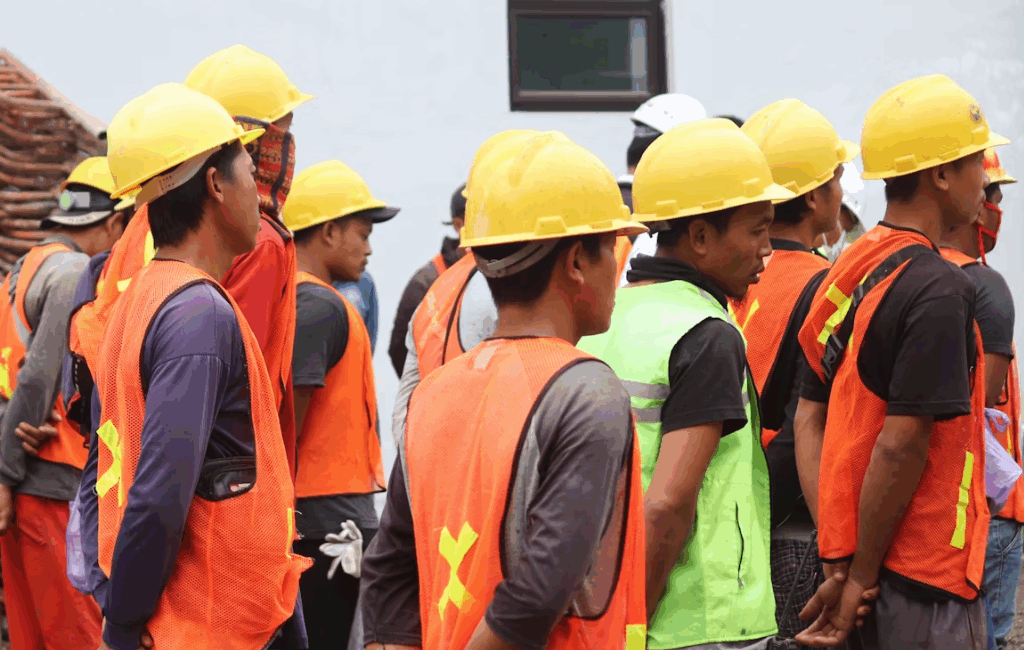
ENGAGEMENT HUB
How tailored training can help you build effective research-policy engagement
Author
About
Andrew Geddes and Eleonora Milazzo
research to policy
Shake off images of a classroom with a teacher-pupil dynamic. When training is interactive, collaborative and tailored to the needs of your audience, it can help to build dialogue between migration researchers and research users, whatever their role or location.
An effective training brings together professionals from a variety of roles and positions in an interactive setting where the practical meaning and application of research can be discussed. Training can help researchers understand more about the kind of evidence people in policy roles may need for their work while, for research users, a greater familiarity with research evidence can reinforce their roles and strengthen their organisations.
Training at the Migration Research to Policy Co-Lab
Migration research does not possess a single, objective meaning and, to have impact, must encounter the realities of organisational and institutional roles and the associated social and political dilemmas.
Our experience at the Migration Research to Policy Co-Lab has shown us that effectively delivered training can help achieve just that.
We have asked researchers and professionals in policy roles about how they experience mutual collaboration in Horizon-funded research projects. Training stands out as a key component of building more effective dialogue.
While the pathway to eventual impact is much more uncertain, this form of engagement is a necessary, and vital first step. Training breaks down organisational silos and promotes dialogue about research and its practical implications between people with different organisational perspectives and from diverse geographical locations.
At the Co-Lab, we have also developed a training facility where we:
-Share research findings and evidence in an accessible way
-Provide a resource base of engagement methods
-Offer highly interactive trainings to build stronger engagement between migration research, policies and practices.
Training as a way to build policy dialogue
Somewhat counterintuitively, our experience has taught us that there can be nothing less inclined to deliver genuine engagement than an event labelled as a policy dialogue or even a high-level policy dialogue. More often than not, these lead to statements of organisational positions rather than genuine engagement. Attaching the words ‘high-level’ can also give the impression that these are elitist and technocratic occasions whereas effective migration policy requires genuine and broad engagement, including with people that have lived experience of migration.
This is not to say that policy dialogue is not important (clearly it is) but rather to suggest that there are other ways to promote dialogue and that training is a good example of this. Effective training setting can:
1. Encourage participants to break free from the constraints of organisational or institutional roles and positions and encounter the views and perspective of others from very different organisations or geographical settings.
2. Help participants to build their professional networks and, by doing so, the capacity of organisations.
Ready to deliver effective training that builds dialogue?
There is no one-size fits all model. Training needs to be tailored to the needs of specific audiences. It could be in-person, online, hybrid and of varying durations, from events of a few hours to programmes that can last for months or even years.
- Target and know your audience: to have a developmental effect, training should ideally be designed for early- to mid-career professionals, including researchers, policy officials, people working for civil society organizations, and others dealing with migration issues. It is at the junior or mid-career levels where training can have its highest developmental impact.
- A focus on links between research, policies and practices: to promote dialogue, effective training should aim for highly interactive curricula that state-of-the-art research and data with practical, real-world experience from policymakers, advisors, researchers and advocates.
- Interdisciplinary and multidisciplinary perspective: training should be tailored to meet the needs of specific audiences and should be developed in collaboration with relevant stakeholders. This requires contributions from across disciplinary boundaries and from a variety of organisational perspectives.
- Skill development: Training should aim to develop critical thinking, communication skills, and other essential skills for participants who are dealing in varying capacities and roles with aspects of international migration.
- Peer learning: Interaction between peers is an important and necessary component of an effective training that builds dialogue. Participants do not need to be ‘taught’ about international migration. They want access to the latest research, but they also want to discuss this research with their peers and have the chance to make sense of it in relation to their own roles and experiences.
Dos and don’ts for effective training
- Do aim for diversity among participants from different kinds of organisation, different geographies, and with lived experience of migration.
- Do aim for effective and accessible communication of research.
- Don’t overload the training with lengthy presentations leaving little time for reflection.
- Don’t teach but rather encourage learning. Participants all have their own expertise and experience. Leave space for dialogue and interaction.
Andrew Geddes is the co-ordinator of the INNOVATE project at the Migration Policy Centre, European University Institute, Florence, Italy.
Eleonora Milazzo is a Research Fellow at the Migration Policy Centre, European University Institute working on the INNOVATE project.
Check out the upcoming training offer of the CoLab.
Submit your idea for a ‘short’ to be featured on the Co-Lab.












